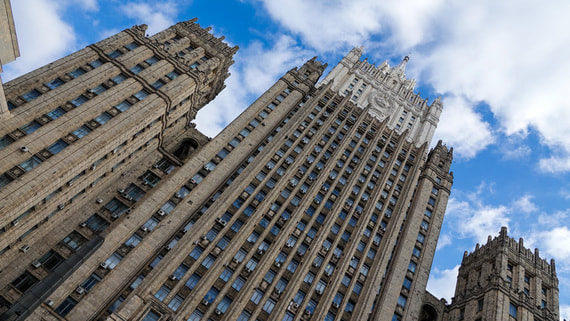Moscow supported Erdogan’s idea of a trilateral meeting with Assad
[ad_1]

Russia has a positive attitude to the proposal of Turkish President Recep Tayyip Erdogan to hold a meeting of Russian, Syrian and Turkish leaders. This was reported to RIA Novosti on December 16 by Russian Deputy Foreign Minister Mikhail Bogdanov. According to him, Moscow is now holding contacts with Damascus on this issue.
Erdogan said on December 15 that during a recent telephone conversation with Russian President Vladimir Putin, he proposed a meeting of the leaders of Turkey, Russia and Syria, and before that, a meeting of the heads of the defense ministry, foreign ministry and intelligence services. According to the Turkish leader, “there are no grudges in politics”, which looks like an allusion to his early demands for Bashar al-Assad to leave the presidency of Syria. Erdogan also accused Assad of being responsible for the victims of the civil war in the country.
Erdogan offered to organize the meeting in the context of his repeated plans to launch a military operation against the Kurds in northern Syria. In mid-November, the Turkish Air Force launched massive airstrikes on Syrian Kurds in response to the terrorist attacks in Istanbul, in which the PKK was accused of involvement.
Now the Turkish leader noted that Ankara stands for joint steps in coordination with Moscow and Damascus. According to Erdogan, the agreements in Sochi in 2019, which stopped the second Turkish operation against the Kurdish formations that control northern Syria, provided for the creation of a 30-kilometer security zone on the Syrian-Turkish border; In fact, Ankara did not completely control this zone. Now in a number of Kurdish-populated areas of Syria, joint Russian-Turkish military patrols are being conducted.
These are not the first statements by the Turkish side, in which there are wishes to establish contacts with Damascus. Diplomatic relations with the Syrian Arab Republic Ankara, which has been supporting part of the Syrian armed opposition since March 2012, broke off at the initial stage of the Syrian civil war.
Thus, on August 5, 2022, Erdogan said that Russia was interested in contacts between him and Assad, but did not specify the possibility of a personal meeting. On September 19, the Russian Foreign Ministry announced that Moscow supports the idea of organizing meetings between the foreign ministers of Syria and Turkey, and is also ready to provide its platform. This was reported to RIA Novosti by the Deputy Minister of Foreign Affairs of the Russian Federation Mikhail Bogdanov.
At the same time, on November 29, the official representative of the Turkish leader, Ibrahim Kalin, said that the meeting between Erdogan and Assad is unlikely to take place before the upcoming presidential elections in Turkey in June 2023, and for such a summit “the conditions should ripen.” According to Kalin, contacts are now being maintained between Ankara and Damascus at the level of special services. On December 4, Reuters, citing sources, reported that Assad himself is resisting arranging a meeting with Erdogan before the election, as he believes that such a contact could boost ratings and help the Turkish leader be re-elected.
The issue of a trilateral meeting is not necessarily entirely related to the problem of Turkey’s planned operation against the Kurds, says Russian International Affairs Council expert Kirill Semyonov. This is rather a reason to start a dialogue with Damascus. In this format, according to the expert, it is possible to resolve the issue with the Kurds and the expansion of the 30-kilometer zone along the Turkish border in Tel Rifat and Manbij, formally controlled by the Syrian government, but not in Kobani (Ain al-Arab) and other areas in the north east, where it is necessary to contact the patronizing Kurds of the United States.
For Russia, the establishment of Syrian-Turkish relations and a possible subsequent settlement in Syria with the integration of the Kurds into official Syrian structures would strengthen the position of Damascus and would allow Moscow to free up military and economic resources that are now busy supporting it and maintaining the situation, emphasizes Victor Nadein, senior researcher at IMEMO RAS – Rayevsky. This is especially important against the backdrop of the Ukrainian crisis, he explains.
A more global goal of the trilateral meeting could be just restarting relations between Ankara and Damascus with the help of Russia, but here the issues are much broader and more diverse, Semyonov says. These are, in particular, the problems of the northern Syrian province of Idlib, controlled in part by both the pro-Turkish opposition and directly by the Turkish army, and the issue of constitutional reform in the country, and the Syrian peace process in a broader sense, the expert lists.
For Damascus, despite Assad’s personal grievances against Erdogan, it is important to unblock the “window of opportunity” in order to increase or even restore legitimacy in the international arena, and break through the long-term economic blockade, opening borders, Semyonov emphasizes.
Ending the civil war in Syria without direct contacts with Turkey, and, consequently, with the pro-Turkish opposition, with Assad is impossible, since Damascus does not always agree with the decisions made in the Astana format (Iran, Russia, Turkey), he notes.
Finally, according to Semyonov, the factor of more than 3.7 million Syrian refugees in Turkey is very sensitive for Erdogan in terms of domestic Turkish policy in the dialogue with Damascus. Any Syrian-Turkish official contact will be perceived in the country in this vein.
If Erdogan, through Moscow’s mediation through establishing contacts with Assad, manages to achieve a settlement in Syria and the security of Turkey’s southern border, coupled with the eviction of Syrian refugees back, leveling the Kurdish factor, this would be a great help for the upcoming elections, says Nadein-Raevsky.
[ad_2]
Source link








